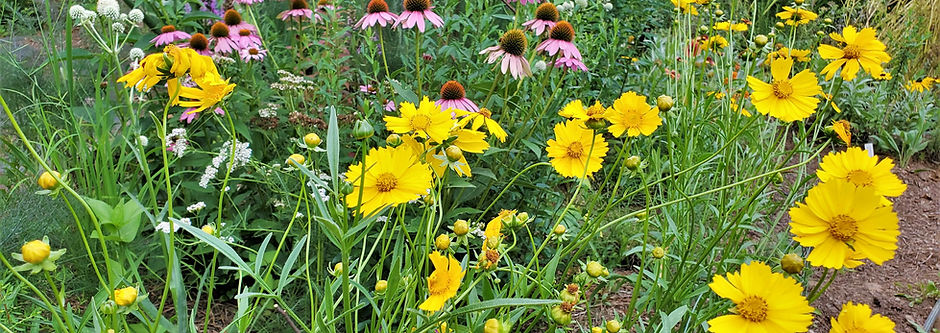Our Actions Have Amplified Cowbird's Impact
- ljmarkson
- Mar 18, 2023
- 2 min read
At the end of February, the when the red-winged blackbirds migrate North, their raucous noise is replaced by the gurgling murmur of a handful of brown-headed cowbirds. My feelings towards cowbirds are mixed because they are fascinating native birds who are part of nature just doing what they do, even though what makes them interesting is one of nature’s peculiarities that has been amplified by our actions.

Cowbirds are masters of observation about other bird’s nesting habits and able to exist because they can modify their own environment to maximize their own survival. Cowbirds are considered obligate brood parasites, meaning they never build their own nests but lay their eggs in the nest of over 220 different species. They have evolved to cleverly remove and replace other bird’s eggs with their own. Some birds like robins will notice, but many won’t.

With so much energy spent on reproduction, not on rearing their young, during nesting season cowbirds are able to lay about 40 eggs in dozens of nests - about 10 times more eggs than other birds. To increase survival, their eggs hatch a day earlier than the host eggs and the chicks are physically bigger, more aggressive about begging for food as well as faster to grow and fledge.

The cowbird's name is believed to come from the way they followed bison and cattle (cows!) in search of insects either on their back or that they unearthed with their hooves. This unusual behavior worked when there were plenty of bison and open prairies, but since the American landscape changed, cowbirds have adapted and been able to expand their range and multiply. Like the grey squirrels that once migrated across our vast forests, cowbirds have evolved to live in more urbanized areas where they now contribute to the decline in some songbird species. The fragmentation of our forests leaves many bird species who once lived in forest interiors vulnerable to cowbirds who prefer nests at the edge of the forest.

Every year when I see a brown cowbird fledgling being taken care of by an attentive foster mother bird, I worry about how cowbirds might be affecting the fragile ecosystem in my part of the world where developers rule, and I can see the songbird’s habitat disappearing in real time. Atlanta is still clinging to the nickname the City in The Forest even though our once famous tree canopy is spiraling downwards towards the critical 40% threshold. Below this number we will join other cities around the country that have become what is known as an urban heat island. Our tree canopy is vital habitat for songbirds and the sparser it gets, the easier it is for cowbirds to thrive.

Like most of the wildlife challenges we’re facing, the diminishing songbird problem is not because of one bird species, but about us needing to change our behavior and offer a richer habitat for songbirds where cowbird behavior would again become a quirk of nature and not contributing to an already dire situation like it is now.

Note - There are no affiliate links in this blog. Please click the highlighted text throughout the posts for links to details, explanations, references, worthy organizations or businesses, or examples that might be helpful.
.jpg)
